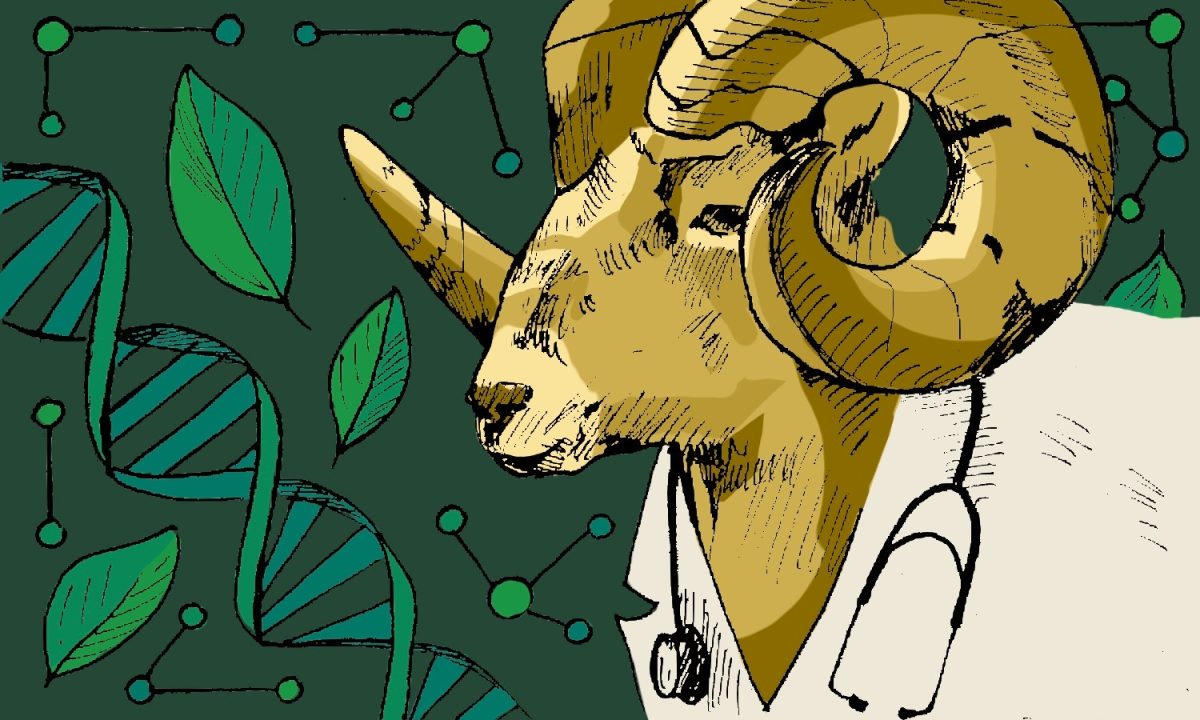One of Colorado State University’s most unique educational environments can be found on the western edge of town at the base of the Rocky Mountain foothills.
Horses trot by on dirt paths, led by students and instructors in CSU’s equine sciences program. Just off Overland Trail at the CSU Foothills Campus, there are several facilities that provide hands-on learning experiences for students in the program.
The equine sciences program at CSU is part of the College of Agricultural Sciences. Students get the chance to learn about a variety of equine occupations and fields of study while in the program, allowing for a diverse and well-rounded education.
Equine science students study equine behavior, breeding management, equine event training, reproduction sciences, equine-assisted services and more during their time at CSU. As they learn, students get to work with horses housed in CSU’s equine facilities, providing them with vital real-world experience.
“I feel like there’s something for everybody, which is huge,” equine sciences student KJ McCollom said. “Because there’s so much offered, everybody can find their niche, which is really cool.”
McCollom didn’t start out as an equine sciences major and hadn’t known anything about the program when she first transferred to CSU. She entered as a psychology student but said she knew that field of study wasn’t where she wanted to be. Discovering the equine sciences program was a defining moment, McCollom said.
“It’s just such a wealth of knowledge from a lot of really wonderful educators. The diversity of opportunities has been great as well. I think it’s so cool to be able to go from, like, really hands-on, heavy training-based classes to, like, very specialized, like, behavior, nutrition and repro and stuff like that.” – Julianna Browder, equine sciences student
“My whole outlook on my future changed, and I felt excited for the first time ever,” McCollom said. “Immediately, I was like, ‘Yes, this is what I’m supposed to be doing. This is what I’m passionate about.’”
Students in the equine sciences program come from a variety of backgrounds and can enter the program with any level of equine experience.
CSU student Julianna Browder originally studied at the School of the Art Institute of Chicago but said she knew she was interested in horses, so she enrolled in a colt starting program at Northeastern Junior College in Sterling, Colorado. Browder said she came to CSU full time after completing the program and immediately loved it.

“It’s just such a wealth of knowledge from a lot of really wonderful educators,” Browder said. “The diversity of opportunities has been great as well. I think it’s so cool to be able to go from, like, really hands-on, heavy training-based classes to, like, very specialized, like, behavior, nutrition and repro and stuff like that.”
Both McCollom and Browder credit the hands-on learning environment with furthering their education in beneficial ways, something equine sciences Instructor Sarah Matlock said is a key part of student success.
“I think the diversity of our courses and the diversity of the level of instruction can really meet the needs of any student, whether they have experience with horses or not,” Matlock said.
Students participate in laboratory courses at the center, where they work with the horses in the various programs. Lecture-style classes are also offered in the classroom located on site. Outside of their courses, students are able to visit and observe classes, giving them an opportunity to see what else the program offers.
“I do spend a lot of my time out at the (Temple Grandin) Equine Center,” McCollom said. “Even if you’re not in classes, it is very much a welcome space where you can come hang out, and you can watch the various applied classes that are happening here and there.”
The education in this program extends beyond equine sciences. Many students learn more about themselves thanks to the amount of time they spend with the horses.
“It’s been cool to experience how much the horses can teach people about themselves,” Browder said. “You know, learning what it takes for me to find patience in moments where they’re not listening or how to go about these difficult situations and still have peace with myself and not overthink.”
As an instructor, Matlock said she sees most students discover something new about themselves as they work with the horses.
“When we learn about the struggles that horses can face emotionally or even learning in the arena, it can help us learn a little bit more about some of the struggles we may be facing,” Matlock said.
The wide array of opportunities available to students also allows for plenty of industry and community connections alike, something McCollom has been able to engage with first hand through the event management course in the program.
As part of the course, McCollom has worked on outreach and marketing for the Equine Experience event Nov. 2 in the Adams-Atkinson Arena.
“The whole thing is just kind of this big educational event, both about horses in general and also to show what we have for our programs,” McCollom said.
The event is open to the public and is intended to showcase the unique opportunities and experiences within the equine sciences program.
“I really love the program for the level of accessibility it has as far as being able to give students who maybe didn’t grow up in an agriculture background a chance to explore horses,” Browder said. “It also gives us in the major (a) chance to kind of help teach the people around us and expose them to agriculture and expose them to horses.”
Reach Hannah Parcells at science@collegian.com or on Twitter @hannahparcells.










